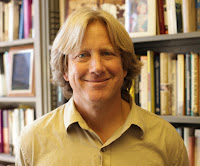5 October, 2017, Knox Book Beat, The Berkeley Times
“empathy, giving, gratitude” and “telling stories that unite.”
At the UC
Berkeley Greater Good Science Center (isn’t it exciting that we have one right here?), Dr.
Keltner has been researching not only power, which “shapes our every
interaction,” (the “personal is the
political,” don’t cha know) but compassion, awe, love, beauty and “how our
emotions shape our moral intuition.” Wow!
Dacher
Keltner’s book, The
Power Paradox: How We Gain and Lose Influence, describes not only behaviors
that truly increase one’s “enduring” power,
which comes from “empowering others in social networks” by increasing “the
greater good;” but how the powerful (and, in America, particularly the wealthy)
often lose real power
through abusing it (inner corruption resulting in bullying others).He then ends
up with a deeply moving section on “the price of powerlessness,” which I would have
put earlier in the book because it is so familiarly depressing in its depiction
of “physical and emotional distress.”
When I moved into my
housing complex, part of our contract included a clause that we could be
disciplined or evicted if we bullied other tenants, including, but not limited
to, “comments or conduct intended to intimidate, humiliate or isolate people in
a way that causes physical or emotional distress.” I had never seen a
definition of this “demoralizing and counter-productive” behavior; but I had
certainly observed, felt, and on some occasions enacted it.
In this season of
declining light and apparent Machiavellian “force, fraud, ruthlessness and
strategic violence;” Keltner gives us the antidotes of “empathy, giving,
gratitude” and “telling stories that unite.” Read chapters One, Four and Five
first; then “Power is Given, not Grabbed,” “Enduring Power Comes from a Focus
on Others” and “A Fivefold Path to Power.”
Unless, of course,
you’d rather not “learn in your own particular way how to transcend the power
paradox and to find delight in making a difference in the world,” improving all
your interpersonal interactions and genuine self-esteem at the same time.
;-) (smiley-face
wink emoticon)

